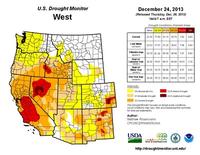-
Lawmakers want mandatory security standards for national grid
Lawmakers have urged the imposition of federal security standards on grid operator in order to protect the U.S. national electric grid from attack. The new push follows stories, first reported in the Wall Street Journal reported last Wednesday, about a 16 April 2013sniper attack which disabled seventeen transformer in a San Jose, California substation for twenty-seven days, causing about $16 million in damage. Federal cybersecurity standards for protecting the grid are in place and mandated, but rules for protecting physical sites such as transformers and substations are voluntary.
-
-
HHS to fund development of drug for bioterrorism, antimicrobial-resistant infections
HHS says that a public-private is partnership will advance the development of Carbavance, a new option to treat bioterrorism threats and antibiotic-resistant infections. The two bioterrorism Carbavance will address are melioidosis, also known as Whitmore’s disease, and glanders. Both melioidosis and glanders can become resistant to existing antibiotics. Already, with existing antibiotic treatments, approximately 40 percent of people who become ill from these bacteria die from the illness, and up to 90 percent die if not treated.
-
-
NSF rapid response research grants to fund study of West Virginia chemical spill
On 9 January 2014, crude 4-methylcyclohexane methanol (MCHM), a chemical primarily used to clean coal, leaked from a storage tank near Charleston, West Virginia, and bled into a river upstream of a water-treatment plant. As a result, about 15 percent of the state’s residents were advised not to drink the water. Better to understand the properties of the chemical that contaminated the drinking water, and the plumbing and water-treatment systems surrounding the area, the National Science Foundation (NSF) has awarded Rapid Response Research (RAPID) grants to research teams at three universities. These grants also will provide STEM learning opportunities for undergraduate and graduate students on the research teams.
-
-
Attack on California power station heightens concerns about grid security
Security experts are concerned that last year’s unsolved attack on an electrical-power substation in San Jose, California, is but a prologue to similar attacks which, if executed simultaneously and in a coordinated fashion against several such substations, could cripple the U.S. power grid. The transformers at the substation, vital for regional power distribution, were shot at by several gunmen and disabled for twenty-seven days. What is especially worrisome, security exert note, is that the attack appeared to have been carried out by people with some training, although the FBI said the agency does not think it was the act of terrorists.
-
-
Snowden’ leaks derailed important cybersecurity initiatives
Edward Snowden’s leaks created such a climate of distrust around the NSA that many important cybersecurity initiatives died, stalled, or became non-starters. Security experts say that this is a case of throwing the baby out with the bathwater, and that the result of these stalled cybersecurity initiatives is that the United States is now more vulnerable to cyberattacks on its infrastructure, and government agencies and American corporations more exposed to sensitive information being compromised and stolen. U.S. officials have found it more difficult to respond to cyberattacks from Russia, China, and elsewhere. “All the things [the NSA] wanted to do are now radioactive, even though they were good ideas,” says James Lewis, a cybersecurity expert at the Center for Strategic and International Studies(CSIS).
-
-
FDA says voluntary phasing out of antibiotics in livestock is working
A study by the Natural Resources Defense Council(NRDC) says that the U.S. Food and Drug Administration allowed eighteen animal drugs to remain on the market despite the agency’s discovery that the drugs posed a high risk of exposing humans to antibiotic-resistant bacteria through food supply. The NRDC criticizes the FDA’s voluntary guidelines for antibiotic phase-out, but observers note that beginning in 2001, the FDA began reviewing thirty approved antibiotic-based feed additives, and that only a few – fewer than the eighteen claimed by NRDC – are still in use, and they, too, will soon be relabeled and not allowed for use in livestock.
-
-
Pace of acquisitions of cybersecurity startups quickens
With the number and scope of cybersecurity breaches on the rise, cybersecurity startups offering innovative security solutions have become a sought-after target in the merger and acquisition market. These innovative companies are eagerly sought not only for their technologies, but also as an investment vehicle, with the average valuation acquiring companies willing to pay approaching ten times revenue. “To pay ten times on services in the normal world is crazy, in the security world it’s normal,” says an industry insider.
-
-
Total California water supplies at near-decade low

Advisory from UC Center for Hydrologic Modeling finds California’s statewide averages of snow, surface water, and soil moisture near 10-year lows. The threat of multi-year period of unsustainable groundwater depletion imminent if drought continues. The data show particularly steep water losses between November 2011 and November 2013, the early phase of the current drought. The researchers estimate that the Sacramento and San Joaquin River basins have already lost ten cubic kilometers of fresh water in each of the last two years — equivalent to virtually all of California’s urban and household water use each year.
-
-
Aging grid cannot keep up with growing demand for electricity
The demand for electricity in the United States increased by around 20 percent from 1999 to 2009, but transmission capacity only increased by around 7 percent in that time. From 2000 to 2004, there were 140 instances of power outages which each affected 50,000 or more consumers. This number increased to 303 from 2005 to 2009. Between 2010 and 2012, there were 226 such outages. The average age of a power plant is 30-years old, and around 75 percent of America’s power lines are 25-years old. Economists estimate that these power outages cost the country more than $70 billion in annual economic loss.
-
-
Making the U.S. grid sturdier, smarter, and more secure to thwart blackouts

In August 2003, fifty million customers throughout the northeastern United States and southeastern Canada lost power for up to two days. More than ten years later, the U.S. electric power system continues to be challenged. In the United States, 149 power outages affecting at least 50,000 customers occurred between 2000 and 2004, a number which grew to 349 between 2005 and 2009. In 2012, the prolonged power outages in New York and New Jersey caused by Hurricane Sandy once again demonstrated the system’s vulnerability. A broad, multidisciplinary effort by Georgia Tech researchers aims to revolutionize the delivery of electricity, advance the smart grid, thwart blackouts, integrate renewable energy sources, and secure utilities from cyberattacks.
-
-
Chemical, defense companies subject to Chinese Nitro attacks
More and more chemical and defense companies around the world are victims of Nitro attacks. These attacks, launched by government-backed Chinese hackers, install PoisonIvy, a Remote Access Tool (RAT) stealthily placed on computer systems to steal information. The majority of the computers infected belong to firms in the United States, Bangladesh, and the United Kingdom.
-
-
Two Israeli startups with innovative cybersecurity solutions raise combined $25 million
Two Israeli cybersecurity startups, launched by veterans of the IDF technology units, announced that, separately, they had raised a combined $25 million from investors. Adallom’s solution accumulates users’ behavioral data in order to protect databases. It monitors how software applications like the customer relationship management program Salesforce, Google apps, and Microsoft Office 360 are used, and protects data security. Aorato’s solution watches for suspicious usage of employee credentials – for example, multiple guessing attempts. “2013 showed the world the risks of advanced threats in parallel to the implications of insiders’ access to sensitive corporate data,” Aorato’s CEO Idan Plotnik noted, referring to the Edward Snowden’s leaks of secret government information.
-
-
National cyber complex to open next to Ben-Gurion University of the Negev campus
A new national cyber complex called CyberSpark will open at the Advanced Technology Park (ATP) which is located next to Ben Gurion University of the Negev. Fortune 500 companies Lockheed Martin and IBM announced they would invest in CyberSpark R&D facilities, joining other cybersecurity leaders Deutsche Telekom, EMC, RSA, and many startups. The 15-building ATP is the only type of complex of its kind in the world that includes Fortune 500 companies and cyber-incubators, academic researchers, and educational facilities as well as national government and security agencies. The CyberSpark will also include a high school geared toward science and technology.
-
-
Some citizens of low-lying Pacific island nations seeking climate-change refugee status
More and more resident of Pacific island nations and territories are trying to claim refugee status in Australia and New Zealand, arguing that rising sea levels, caused by climate change, are forcing them out of their homes and destroying their livelihood. The New Zealand High Court has rejected the refugee status petition of Loane Teitota and his family, citizens of Kiribati, a low-lying Pacific Island nation near the equator, saying that Teitota’s argument was “novel” and “optimistic.” The court cautioned that if the argument were adopted, then millions of people suffering from the effects of climate change would seek refugee status in New Zealand or any other country.
-
-
The 9 January chemical leak in West Virginia is the latest in a long history of industrial accidents
The chemical spill that affected the water source in nine West Virginia counties in early January is part of a long history of industrial accidents resulting from the concentration of chemical and coal-mining operations in the region. The 9 January spill, which saw coal-cleansing chemical which leaked from Freedom Industries’ storage tank into the Elk River, leaving more than 300,000 residents without access to clean tap water for days, is the latest in a history of pollution which has poisoned groundwater, spewed toxic gas emissions, and caused fires and explosions.
-
More headlines
The long view
Factories First: Winning the Drone War Before It Starts
Wars are won by factories before they are won on the battlefield,Martin C. Feldmann writes, noting that the United States lacks the manufacturing depth for the coming drone age. Rectifying this situation “will take far more than procurement tweaks,” Feldmann writes. “It demands a national-level, wartime-scale industrial mobilization.”
Trump Is Fast-Tracking New Coal Mines — Even When They Don’t Make Economic Sense
In Appalachian Tennessee, mines shut down and couldn’t pay their debts. Now a new one is opening under the guise of an “energy emergency.”
Smaller Nuclear Reactors Spark Renewed Interest in a Once-Shunned Energy Source
In the past two years, half the states have taken action to promote nuclear power, from creating nuclear task forces to integrating nuclear into long-term energy plans.
